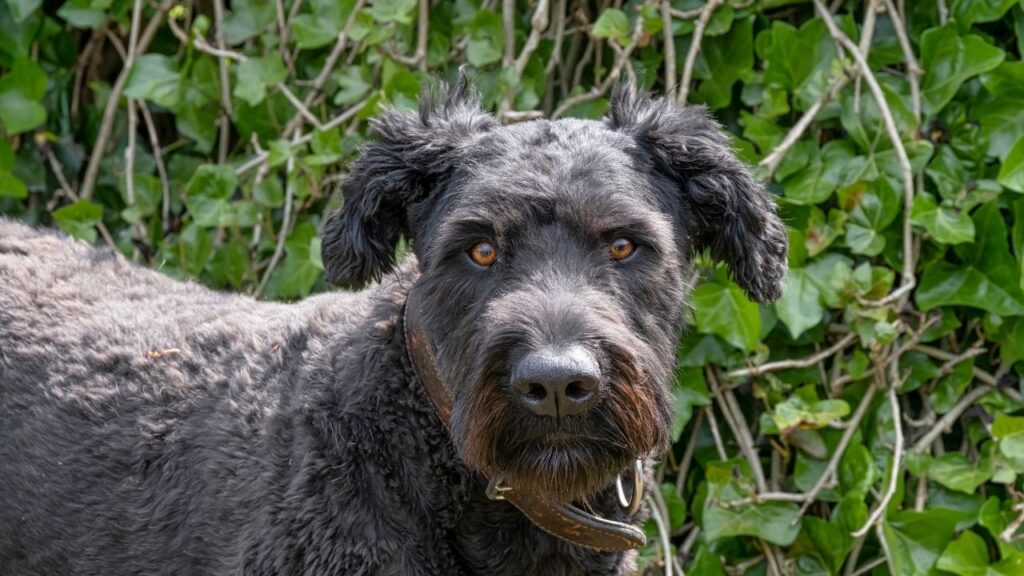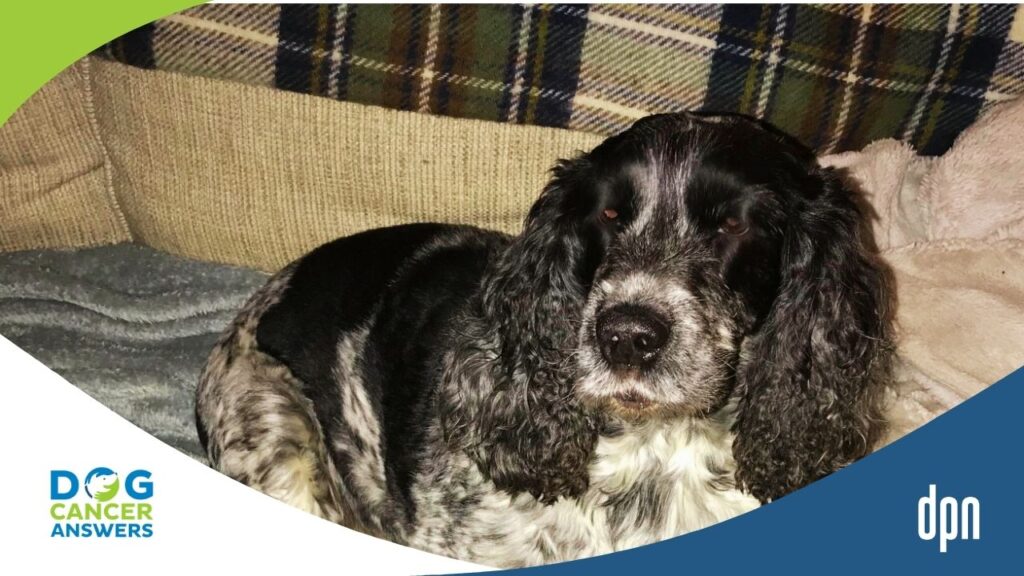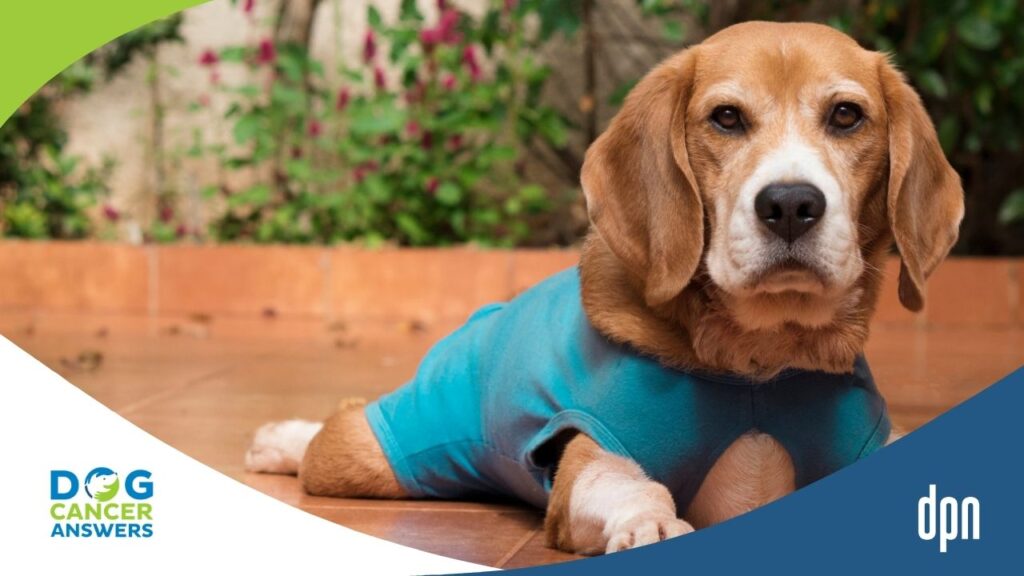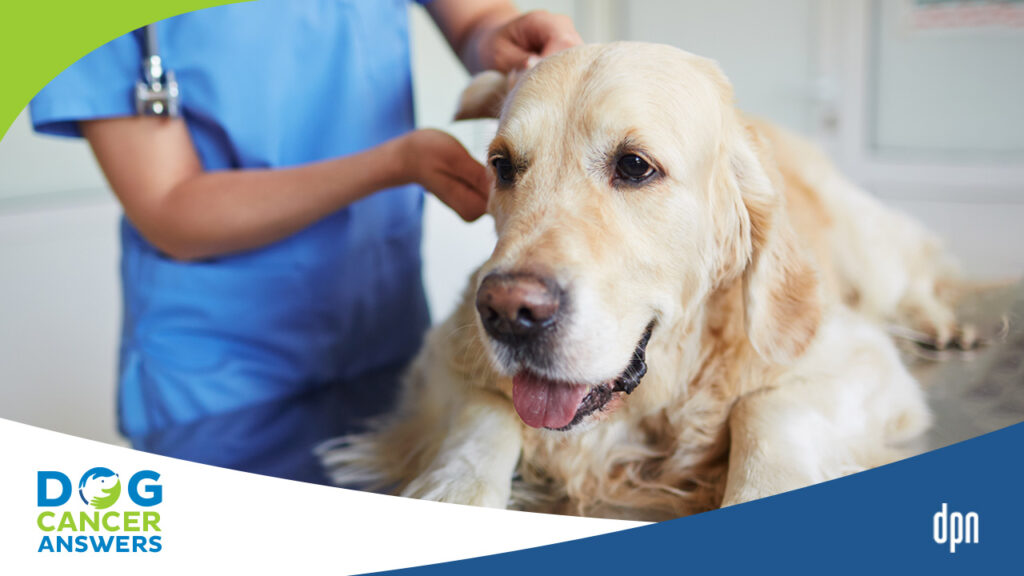>> Dr. Demian Dressler: [00:00:00] So ask the veterinarian, ask the oncologist, what’s the added survival, what’s the side effect risk. What does that look like? What are the costs? And I think that may help guide some of your treatments in addition to utilizing the things that you can do at home.
>> Announcer: [00:00:22] Welcome to Dog Cancer Answers, where we help you help your dog with cancer.
Here’s your host, James Jacobson.
>> James Jacobson: [00:00:30] Hello friend. Today, we are taking a call from a listener whose newly adopted senior dog has prostate cancer. She’s worried that his late stage neutering may be related to the cancer. She also has a question about the supplement EverPup. To answer both of those questions, we are joined by Demian Dressler. Dr. Dressler is author of our show’s sponsor, The Dog Cancer Survival Guide. And he’s also the formulator of the supplement that Betsy is asking about, which has EverPup. So, Dr. Dressler, is the perfect person to ask. Dr. Dressler, thanks for being with us again today.
We have a caller, a listener call-in question. Are you ready? This is Betsy from Annapolis.
>> Betsy: [00:01:19] Hi, my name is Betsy OMeara and I’m calling from Annapolis, Maryland. I adopted a dog, March 14th, 2020 named Remy he’s an American pit bull terrier American Staffordshire mix. He’s very sweet and snugly and he was a perfect COVID dog.
But I found out in November that he has prostate cancer. So he’s about, almost 11 now. We’re not sure entirely of his birthday. And he was neutered a couple of weeks before I got him last year. So I know prostate cancer is very rare and I hear both things, that neutering the dog helps, not neutering your dog helps … And I was wondering if getting neutered so late in life had any effect on prostate cancer.
I also wanted to know how the supplement EverPup interacts with the cancer diet. Cause I used The Dog Cancer Survival Guide diet for Remy, which he loves, and I’ve started using EverPup for both my dogs. And I didn’t know if that affects any of the additives or supplements or anything else in his diet.
And I just wanted to double check.
>> James Jacobson: [00:02:24] Okay, Dr. Dressler, what advice do you have for Betsy and Remy?
>> Dr. Demian Dressler: [00:02:27] Aw, yes. Sorry to hear about this. The late stage neuter is not a risk factor. That’s the early neuter. So you’re clear. The answer is no. Rare things do happen, but they’re rare, but prostate cancer does happen.
And even though something is rare, when it occurs to us, it’s 100% of the time. So I understand now. Now the second question had to do with the use of EverPup. EverPup is something that is used to for dogs as a overall health supplement. And it supports different organs all at the same time. It is not really a therapeutic.
Maybe you may be thinking of Apocaps. Apocaps is something that’s used, at least in my cancer patients, as one of the strategies that I help to decrease cancer cell burden, or at least increase healthy levels of apoptosis in the dog, which is a way of providing the helpful support in dogs that have problems such as yours.
But I would definitely realize that prostate cancer, as you probably are aware, is no joke. It’s highly malignant. And so my advice to you would be to use all of the different tools that you have at your disposal after a careful treatment plan analysis, where we’re looking at all of the costs and all of the benefits and asking all of the right questions.
It’s a, I think a mistake to rely, say solely on diet or solely on one supplement, because it’s really important to use all of the different things that we talk about in The Dog Cancer Survival Guide and get an idea of expectations. What are we going to get for your dog, for your pit bull out of the deal using this tool?
So ask the veterinarian, ask the oncologist, what’s the added survival, what’s the side effect risk. What does that look like? What are the costs? And I think that may help guide some of your treatments in addition to utilizing the things that you can do at home, the mind body connections and the life quality.
And you mentioned diet and all these different things should be taken into account with prostate cancer. It?s agressive.
>> James Jacobson: [00:04:39] So specific to her question about using EverPup, along with the diet, is there a reason to not do it or to do or is?
>> Dr. Demian Dressler: [00:04:47] No, there’s not a reason to not do it. It’s fine to use alongside. But if you’re trying to use that as a foundational approach to dealing with prostate cancer, that’s a mistake.
>> James Jacobson: [00:04:59] Okay. But doing it alongside, I would imagine supports the home cooked diet that you have in The Dog Cancer.
>> Dr. Demian Dressler: [00:05:05] It?s not a problem, it’s not, and there’s not an interference issue and there’s nothing like that. You can use it right alongside.
>> James Jacobson: [00:05:10] Okay. Well, Betsy, thank you for your question. And thank you to Dr. Dressler for your answer.
If you have a question about any aspect of your dog’s cancer, do what Betsy did and call our Listener Line at (808) 868-3200. Leave your question there and we will get it answered for a future show. Let’s take a quick break, and I’ll see you on the other side for some tips on Treatment Plan Analysis, which is an important part of Dr. Dressler’s approach to dog cancer.
We’ll be right back.
And we are back. Something that Dr. Dressler said to Betsy reminded me of how there is a section of his book, The Dog Cancer Survival Guide, that most people skip right over. But honestly, it may be one of the most helpful chapters of the book. It’s the chapter on Treatment Plan Analysis. And it starts with the following sentence quote, if there were one absolute quote, cure for cancer, unquote, there’d be no need for you to analyze your treatment options. You’d simply do what we recommend. Unfortunately, we do not yet have the silver bullet that kills cancer. So you have some decisions to make, and those decisions require some thought.
That’s how he begins the chapter. And the reason that this chapter is so important is this: there are no great options and no horrible options in any given cancer treatment plan. You’re probably not going to hear an oncologist say, wow, if you do this one thing, you will kill a hundred percent of the cancer, and never have to think about it ever again. So it is always choosing the least worst option it?s sad, but it’s true. So what I love about this chapter is that Dr. Dressler helps you make decisions by helping you identify your own priorities, first. He has a little personality test that will help you to know who you are, which is then helpful in helping you decide which treatment option fits your dog the best, because there isn’t just one thing that works.
There’s no diet, or no one supplement or one drug or one surgery that is always going to work for every dog, a hundred percent of the time. Just like in human cancers, we never know for sure what will work. So instead it’s best to focus on what is the best fit. It’s a great chapter and people who read it make great decisions for their dogs.
And that’s really the whole point of our work here on this podcast. And in Dr. Dressler’s book. It’s for you to have no regrets. As long as you know, you’re making the best choice that you can at any given time, you will be less likely likely to beat yourself up later. It also helps to get support of course, which is why you should reach out for it.
We have several ways to support you starting with, of course, Dr. Dressler’s book, which you can find at DogCancerBook.com. You should also join our private Facebook support group. The web address for that is DogCancerSupport.com and also sign up for our email newsletter at DogCancerNews.com. All those links are in the show notes for today’s episode.
Remember, we are here to support you now so that you hopefully have no regrets later on.
Oh, there are those touchstones. They’re here every week, to remind me, to remind you to call into our Listener Line. Once again, the phone number is (808) 868-3200. (808) 868-3200. You’ll find that number and all the links for this show in the show notes today, which you can see in your podcast app or on DogCancerAnswers.com.
You’ll also find the entire back catalog of episodes on our website, DogCancerAnswers.com. Well, that is it for today’s show. I am James Jacobson and from all of us here at Dog Podcast Network, I wish you and your dog, a very warm aloha.
>> Announcer: [00:09:53] Thank you for listening to Dog Cancer Answers. If you’d like to connect, please visit our website at DogCancerAnswers.com or call our Listener Line at (808) 868-3200. And here’s a friendly reminder that you probably already know: this podcast is provided for informational and educational purposes only.
It’s not meant to take the place of the advice you receive from your dog’s veterinarian. Only veterinarians who examine your dog can give you veterinary advice or diagnose your dog’s medical condition. Your reliance on the information you hear on this podcast is solely at your own risk. If your dog has a specific health problem, contact your veterinarian.
Also, please keep in mind that veterinary information can change rapidly. Therefore, some information may be out of date. Dog Cancer Answers is a presentation of Maui Media in association with Dog Podcast Network.








